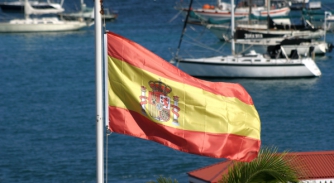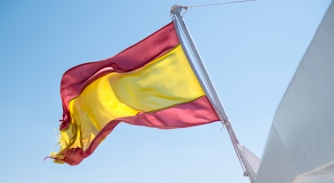Understanding VAT in yachting
Miguel Ángel Serra, Founding Partner of Legalley+, examines the complexities and misconceptions surrounding VAT in Spain…
While the intricacies of transactions involving the purchase, sale, and financing of transportation means, like yachts and aircraft, are manifold, the analysis and treatment of Value Added Tax (VAT) is paramount. It often influences the strategies surrounding ownership, acquisition, and chartering.
At its core, VAT is an indirect tax on the consumption of goods and services, as well as intra-community acquisitions and imports within a country. It is primarily levied upon entrepreneurs and professionals, who then pass it on to their clients unless the transaction is exempt or falls outside the tax's jurisdiction. Therefore, it's essential to discern when a transaction is exempt or "located" in another country, ensuring VAT isn't mistakenly charged. If a business entity is at the receiving end of a VAT-taxable (and non-exempt) transaction, it can typically reclaim the input VAT.
VAT, with its unique charge/deduction mechanism, is among the most prevalent taxes worldwide, having been adopted in roughly 140 countries under various names, like GST (Goods and Services Tax). In contrast, the US Sales Tax differs significantly, as it's applied only at the final consumption stage, unlike VAT, which is a multi-phase tax.
However, is VAT as daunting as it's often portrayed? While it’s perceived as a convoluted tax, and even though it’s standardised within the EU, it's rife with intricate provisions, exemptions, and especially challenges when dealing with international transactions, such as in the yachting and aviation sectors.
Yet, one overlooked cause of this perceived complexity might be the underqualification of many "advisers." The industry teems with self-proclaimed 'tax specialists', yet, notably in Spain, there are no stringent criteria for becoming a tax advisor. In essence, anyone can profess to be one, regardless of their educational background. This, unfortunately, contributes to VAT-related confusion and disputes, more so in Spain than in some other EU nations.
For clients in Spain, it's imperative to exercise diligence while choosing professionals to guide them, prioritizing those with legal qualifications and specialization. Given that VAT's correct application hinges on accurate legal interpretation of technical directives and regulations, seeking guidance from unqualified individuals is fraught with risks.
Lastly, it's crucial to note the implications of Council Directive (EU) 2018/822, or DAC6, which mandates tax intermediaries to report certain cross-border arrangements. The European Court of Justice (ECJ) has ruled that DAC6 compromises the confidentiality between lawyers and their clients, as enshrined in Article 7 of the Charter of Fundamental Rights of the European Union. Hence, tax professionals other than lawyers are bound by DAC6's requirements.
In summary, for peace of mind and sound legal advice regarding VAT in Spain, always entrust transactions to suitably qualified and experienced professionals. With the right guidance, you might find that VAT is not as labyrinthine as it first appears.
NEW: Sign up for SuperyachtNewsweek!
Get the latest weekly news, in-depth reports, intelligence, and strategic insights, delivered directly from The Superyacht Group's editors and market analysts.
Stay at the forefront of the superyacht industry with SuperyachtNewsweek
Click here to become part of The Superyacht Group community, and join us in our mission to make this industry accessible to all, and prosperous for the long-term. We are offering access to the superyacht industry’s most comprehensive and longstanding archive of business-critical information, as well as a comprehensive, real-time superyacht fleet database, for just £10 per month, because we are One Industry with One Mission. Sign up here.
Related news

AcqueraPro: streamlining onboard operations
Say hello to AcqueraPro: the ultimate digital platform for yacht captains, their crew and management companies
Crew

Breakthrough on Spanish charter licensing
Lawyer and economist Miguel Ángel Serra explains the significance of a simplified charter licence that should be in place for the 2023 season
Crew

Spanish yacht market yet to realise full potential
Lawyer & Economist, Miguel Ángel Serra, proposes a strategy to help evolve the Spanish yacht market
Opinion

Tax relief for non-EU yachts
Evolution Yacht Agents explains how non-EU yachts can gain 21% tax relief under TPA while moored in Spain
Business
Related news
AcqueraPro: streamlining onboard operations
2 years ago
Breakthrough on Spanish charter licensing
2 years ago
Tax relief for non-EU yachts
3 years ago
NEW: Sign up for
SuperyachtNewsweek!
Get the latest weekly news, in-depth reports, intelligence, and strategic insights, delivered directly from The Superyacht Group's editors and market analysts.
Stay at the forefront of the superyacht industry with SuperyachtNewsweek



